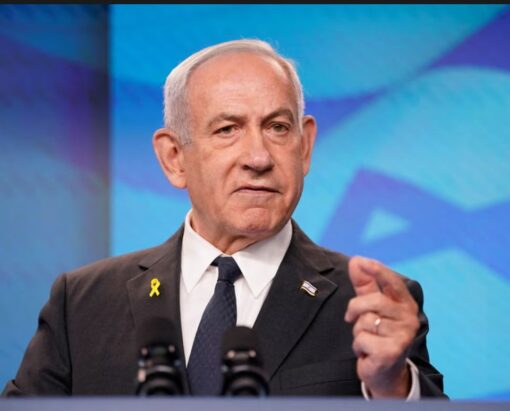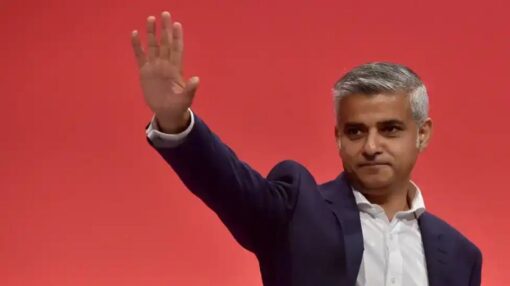The United Nations General Assembly in New York became the stage for one of the most charged speeches of the week when Qatar’s Emir Sheikh Tamim bin Hamad Al Thani directly accused Israel of deliberately undermining negotiations aimed at ending the war in Gaza.
In his forceful address, the Emir denounced the September 9 attack in Doha that targeted Hamas leaders as an act of state terrorism that not only violated Qatari sovereignty but also sabotaged fragile truce talks.
His remarks, delivered to a hall packed with global leaders, diplomats, and media, resonated far beyond the UN building, fueling international debate about Israel’s strategy in Gaza, Washington’s silence, and the fragile state of Middle East diplomacy.
Sheikh Tamim declared that the strike, which killed six people and left entire neighborhoods in shock, was a brazen attempt to derail mediation efforts.
“The attack undermines any diplomatic effort aimed at ending the genocide against the people in Gaza,” he said, calling Israel a rogue state that negotiates in public while plotting assassinations in private.
He framed the incident as a deliberate escalation designed to make Gaza unlivable, accusing Israel of treating negotiations as a continuation of war by other means.

The Emir’s speech went beyond the single incident in Doha, placing it within the wider context of Israel’s military campaign in Gaza, which has killed more than 65,000 Palestinians according to Palestinian authorities, while displacing hundreds of thousands more and flattening entire neighborhoods.
The Qatari leader warned that Israel’s long-term goal was to destroy Gaza’s viability as a homeland for Palestinians, denying them the right to education, healthcare, and a dignified life.
“It is difficult to cooperate with a mentality that does not respect the most minimum standards of cooperation,” he said, emphasizing that Israel has mastered the art of negotiation as public theater, while privately advancing a policy of annihilation.
His language was some of the harshest yet heard from the Gulf leadership, signaling Qatar’s frustration that its mediation efforts have been repeatedly undermined by military escalations.
The Emir also accused Israel of weaponizing accusations of antisemitism and terrorism to silence critics, even among its allies. “Israel has tried to brand all opponents as either antisemitic or terrorist.
But even its allies now see through this tactic,” he argued, positioning Qatar as part of a growing international bloc that challenges Israel’s narrative.
He drew parallels with the global movement against apartheid in South Africa, suggesting that Palestine’s struggle has entered a similar phase of international solidarity. “Here we are today, where we witness an international solidarity movement that is similar to the international movement against apartheid last century,” he said.
The attack in Doha, carried out in a residential district that housed schools and diplomatic missions, was condemned worldwide as a dangerous violation of international norms.
For Qatar, which has hosted negotiations between Israel and Hamas for years and serves as one of the few regional actors with open channels to both sides, the strike was a humiliation and a warning.
Washington expressed regret but stopped short of condemning Israel outright. U.S. officials reassured Doha that further such attacks would not be tolerated, given that Qatar hosts Al Udeid Air Base, the largest American military installation in the Middle East. Still, the muted U.S. response angered Qatari officials, who view American silence as complicity.
The Emir’s speech landed amid a stormy UNGA session dominated by Gaza and wider Middle Eastern instability. U.S. President Donald Trump surprised delegates by calling for the war in Gaza to stop “immediately,” a remark seen as a rare moment of pressure on Israel from Washington.
Turkish President Recep Tayyip Erdoğan went further, holding up photographs of starving children in Gaza and accusing the world of abandoning its conscience.
Jordan’s King Abdullah II described the conflict as “one of the darkest moments in this institution’s history,” while warning that endless condemnations without concrete action would cement injustice for generations.
UN Secretary-General Antonio Guterres added weight to the chorus of criticism, reminding delegates that a recent UN Human Rights Council report concluded that Israel had committed genocide in Gaza.
“Human rights are not an ornament of peace; they are its bedrock,” Guterres said. “If we abandon justice, we abandon humanity itself.” The Trump administration had withdrawn from the Human Rights Council earlier in the year, calling it biased, while Israel dismissed the report outright.
The Emir connected the Doha strike to a broader erosion of international law, warning that unchecked violations risked ushering in “the rule of the jungle.” He reminded delegates that the rules-based order was supposed to safeguard peace, human dignity, and sovereignty. “If we allow violations to continue, it means allowing perpetrators to enjoy benefits just because they can,” he said, accusing the international community of selective outrage.
Israel, for its part, defended its actions as counterterrorism. Israeli officials argued that Hamas leaders in Doha were legitimate targets, accusing Qatar of hosting militants while pretending to act as mediator.
This line of argument was quickly rejected by Qatari diplomats, who pointed out that Doha’s mediation role had been recognized by the United States and the United Nations for years. “You cannot invite us to host negotiations and then bomb those same negotiators on our soil,” one Qatari official told reporters.
The controversy came as several European states, including France, Belgium, Malta, and Luxembourg, formally recognized Palestinian statehood in symbolic defiance of Israeli policy.
The Emir welcomed these moves as signs of a shifting global mood, comparing them to the incremental international isolation of apartheid South Africa in the 1980s. France’s President Emmanuel Macron urged leaders to support a two-state solution, while Saudi Arabia co-hosted a summit in New York to rally global consensus.
The Emir’s accusations struck a nerve at a moment when Israel faces growing international scrutiny. Over 150 countries have now recognized Palestine, and major protests continue to erupt across Europe, North America, and the Middle East, demanding an end to Israel’s military campaign.
Activists argue that Israel’s policies amount to ethnic cleansing, while Israel insists it is defending itself from Hamas rocket fire and cross-border attacks.
For Qatar, the stakes are unusually high. The small Gulf state has carved out an outsized diplomatic role as a mediator in conflicts ranging from Afghanistan to Sudan. The Doha attack struck at the heart of that reputation, making Qatar appear vulnerable to violations of sovereignty.
By using the UNGA stage to publicly accuse Israel, Sheikh Tamim sought to reclaim diplomatic credibility, while rallying international opinion around Gaza. “This is not only about Qatar. This is about international law. If such attacks go unpunished, no state is safe,” he warned.
The Emir’s words reverberated through New York’s diplomatic circles long after he left the podium.
Supporters applauded his courage in naming Israel directly, something many Arab leaders avoid for fear of Western backlash. Critics accused him of political theater, pointing out that Qatar still maintains significant economic ties with Western capitals and hosts U.S. military assets.

Yet even skeptics acknowledged that his speech crystallized a growing global divide over Gaza, forcing world leaders to confront uncomfortable truths.
As the UNGA session continued, the Emir’s accusation became a focal point of debate in both Arab and Western media. Was Israel deliberately sabotaging truce efforts, or was it acting within its right to target Hamas leaders? Was Qatar a genuine mediator, or a patron of Islamist groups? Those questions may remain unanswered, but Sheikh Tamim’s speech ensured they would not be ignored.
The Gaza war, now in its bloodiest phase, shows little sign of abating. Israel continues to strike Gaza daily, while ceasefire proposals collapse under the weight of mistrust. The Emir’s address at the UNGA may not halt the fighting, but it has already reshaped the diplomatic narrative.
By directly accusing Israel of sabotage and genocide, Qatar forced the international community to reckon with the contradictions at the heart of global diplomacy: the gap between the language of peace and the reality of war.
More news at swiftreportnow


